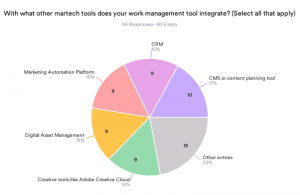As we evolve into our new virtual world and become reliant on communications technology to host our meetings of all shapes and sizes, I’ve been wondering how we will position our many fantastic leaders. As I’ve watched them perform, I’ve realized that we need facilitators now more than ever before—not speakers, experts, trainers, nor managers. In other words, right now, businesses and teams need thoughtful facilitation. We need more facilitated discussions more than ever.
As a thought leader myself, I’ve been asked to speak about, consult on, and offer my opinion on culture and the employee experience on many occasions. Many of our trainers and speakers are also experts in their field and have incredible insights to share. But as I’ve watched them perform—and noticed even in my own deliveries these past few months—the one thing that stands out right now is that people just want to talk, maybe more now than ever before.

Therefore, rather than offering more viewpoints, the real skill right now is for facilitators who can lead a team through a meeting, discussion, or ideation. Great facilitators (like great leaders) exist to enable others to speak, to ensure all points of view are considered, and to create an environment where everyone feels heard. With this in mind, I wanted to share what a thoughtful facilitator does and why, as a speaker, trainer, or manager, you should make these behaviors a priority and the focus for everything you do in-person or virtually.
What does it mean to be a thoughtful facilitator?
A thoughtful facilitator is an expert in asking the right questions—specifically using Socratic questioning, which is a skill the best facilitators engage in. Socratic questioning is a disciplined approach to questioning that Socrates, a Greek philosopher, identified as a way to explore issues in-depth with his students. In some ways, this form of questioning is about the facilitator acting ignorant or even clueless on a topic and encouraging the group to speak more to explore their own ideas and act more as the expert.
I’ve found over the years that this is the most effective way to get a team to explore their own feelings, opinions, and ideas. But it also meant I had to keep my mouth shut, even when I knew the answer or had my own insights to share—which was and is not easy. This may be why thoughtful facilitation is so hard for experts and senior managers to do — they believe they have all the answers (and they might) and don’t want to be seen as the one asking the “dumb” questions. Facilitators aren’t afraid to ask the “dumb” questions to allow others to step up and provide answers, share ideas, and be the expert. In some ways, it enables and empowers others, which is something everyone could use right now over more lectures or reminders about who is in charge.
Why thoughtful facilitators are critical
Thoughtful facilitators are critical to help challenge well-entrenched norms, behaviors, and processes because they’re not tied to nor emotionally invested in something that has always been done a certain way. It’s a great time right now to challenge our thinking, approach, and policies. With so much turmoil going on around us, it’s an ideal time to consider how to make things better, safer, and more efficient. I see employees open to change because they’ve been forced into it on so many fronts right now, and everyone believes there is and must be a better way of doing things. A thoughtful facilitator or leader helps us through this process by asking the right questions, which most likely will seem “dumb” to those who’ve always been doing things or thinking that way. While it seems simple (and it’s definitely not “dumb”), asking “Why?” continues to be one of the most important questions anyone can ask.
What type of questions should facilitators focus on?
Now, there are other types of questions a facilitator might ask using Socratic questioning, such as clarification, assumption, reasoning, and viewpoint questions.
- Clarification questions clarify what someone means.
- Assumption questions ask why certain assumptions have been made.
- Reasoning questions ask for examples or sources of information.
- Viewpoint questions ask someone to consider another’s point of view.
All of these types of questions require the facilitator or leader to have patience, curiosity, and a commitment to helping others understand. The most important benefit of effective facilitation right now is helping to foster understanding by encouraging others to see and hear those around them, and taking them out of their comfort zone.
Listen to every team member
I also know that effective facilitators understand there are extroverts and introverts in every group, and they quickly identify these types to ensure conversations are not dominated by the loudest, and those who are quiet are heard. It’s my experience that those who are the loudest don’t always have anything worthwhile to say, while those not saying anything have wonderful insights to share if asked correctly. As a manager, you need to hear from all your team members, not just those with the most to say.

Of course, all of this requires listening, and a good facilitator is not only excellent at modeling active or empathetic listening, but they’re also able to explain why it’s necessary and isn’t afraid to remind their team about this throughout any session. I recently watched one of our trainers reinforce empathetic listening on more than one occasion during a session — this may have seemed repetitive but was so necessary to what was being discussed. It also reminded me that true listening is not a behavior many people do naturally nor practice effectively in our fast-paced business world. Leaders must be diligent about listening, setting the example, and exemplifying this behavior, which requires practice and discipline.
Practice thoughtful facilitation
These are my reasons why thoughtful facilitation is needed now more than ever before. If you are a leader, remember that you need to be more of a facilitator than a teacher. As a manager, you need to be more curious than believing you know it all. Help people talk, understand, and listen — it’s the most important thing everyone needs right now.
Take the first step towards becoming a thoughtful facilitator by building trust with your employees. Get started by accessing Achievers’ white paper, “Empowerment and Trust: The Keys to Employee Engagement.”
Business & Finance Articles on Business 2 Community
(61)






